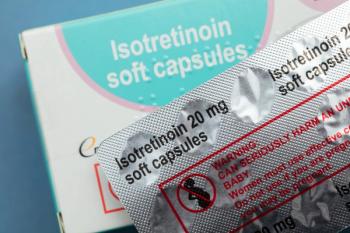
Medical Non-Compliance Post-BMT in Pediatric Patients Associated With Annual Income, Insurance Status
The study results also indicated that graft versus host disease status was associated with non-compliance following bone marrow transplantation.
Study results published in Transplantation and Cellular Therapy demonstrate that, following bone marrow transplantation (BMT) medical non-compliance was significantly correlated with the incidence of graft versus host disease (GVHD) in addition to socioeconomic status. The study findings were presented at the 2024 Transplantation & Cellular Therapy Meetings of American Society for Transplantation and Cellular Therapy (ASTCT) and Center for International Blood and Marrow Transplant Research (CIBMTR) Tandem Meetings, which was held from February 21, 2024, to February 24, 2024.
Although there are advancements in pediatric BMT, medical non-compliance continues to be a significant challenge. According to the authors, a lack of research actually addresses the factors that may contribute to the non-compliance of pediatric patients who are eligible for BMT. A total of 32 patients aged 1 to 19 years who underwent bone marrow transplants from 2019 to 2022 were enrolled in the study. In addition, demographics, such as age, gender, race, ethnicity, and language; socioeconomic status, including employment, residence, annual household income, and insurance; underlying diagnosis, whether it is malignant or non-malignant; and GVHD status were examined to determine the potential impact on medical non-compliance following BMT. The authors note that primary residence zip codes were used to assess annual household income, and that for every dollar increase in an income, the long odds of non-compliance were decreased by .000046, resulting in .99 times decrease.
According to the study results, the proportion of patients who were considered to be medically non-compliant was approximately 53%. Of the patients enrolled in the study, most were female (66%), White (78%) and of Hispanic ethnicity (78%), and had an underlying malignant diagnosis (66%). Annual household income and insurance status were more associated with medical non-compliance. Further, contrary to their predictions, the authors noted that race, ethnicity, language, and underlying malignant diagnoses were not significantly associated with non-compliance, however, it was associated with an increased incidence of GVHD.
Additionally, the study authors noted that despite the findings, future research with larger patient populations will be necessary to confirm the findings. Further, the authors are hopeful that identifying the causes of medical non-compliance in pediatric patients may lead to the implementation of interventions that will help improve compliance while providing additional support that can benefit both patients and their families.
Reference
Torres FM, Medina B, Ocampo RG, et al. Income Level and Insurance Status Are Correlated with Medical Non-Compliance after Bone Marrow Transplant in Children. Transplantation and Cellular Therapy. 2024;30(2, Supplement):S281-S282. doi:10.1016/j.jtct.2023.12.379
Newsletter
Stay informed on drug updates, treatment guidelines, and pharmacy practice trends—subscribe to Pharmacy Times for weekly clinical insights.








































